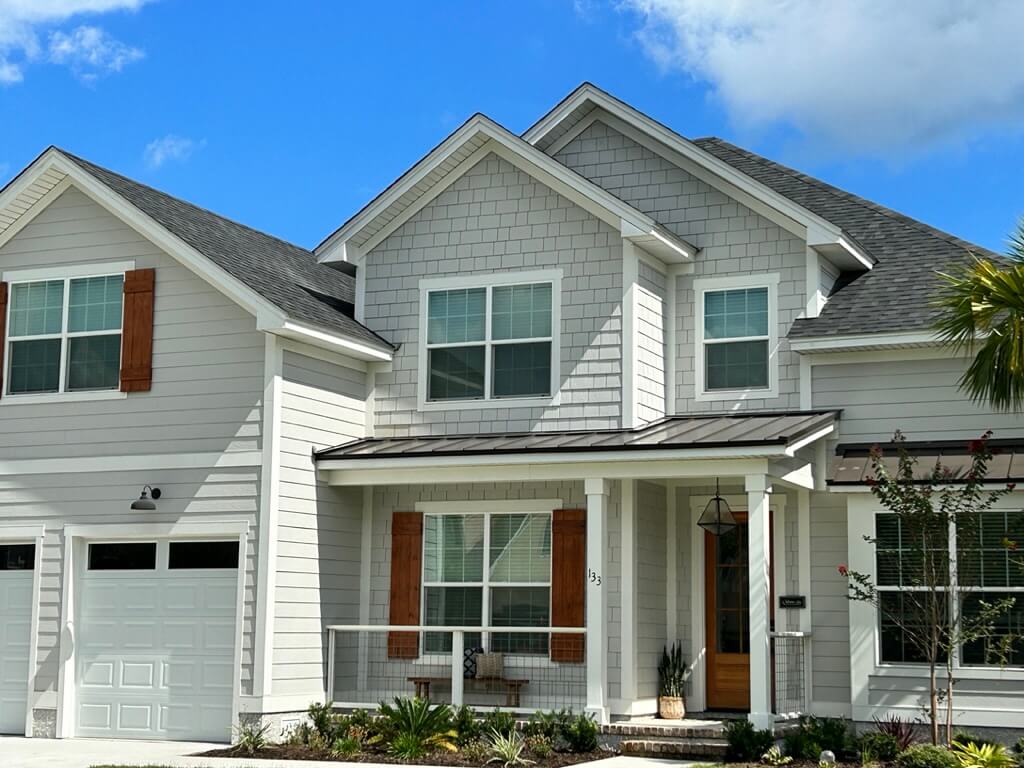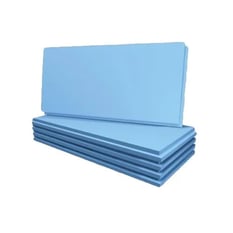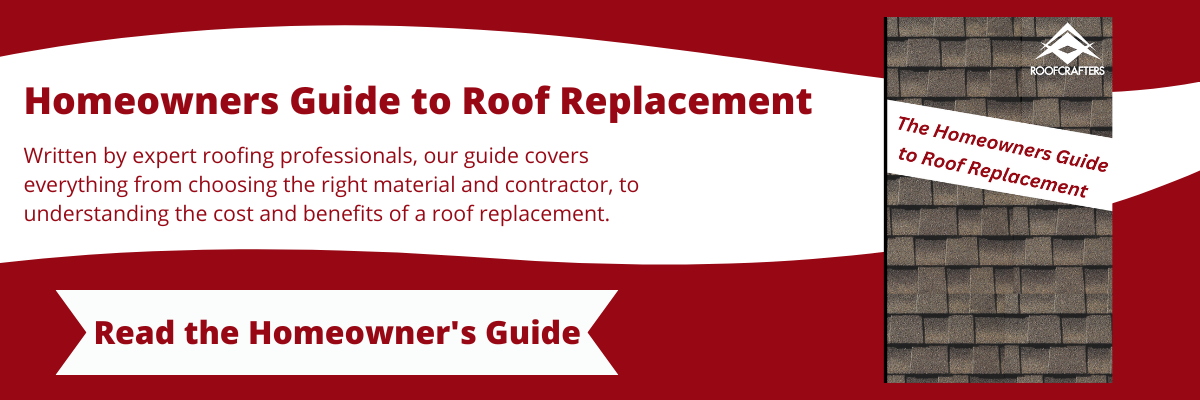
If you've never heard of polystyrene board, join the club. What seems like a basic material used for various purposes actually benefits your roof in in incredible ways! We're sure you know that when it comes to keeping your home safe and comfortable, your roof is a key player. If you're exploring options to improve it, extruded polystyrene board might just be the solution you're looking for.
Picture this: a sturdy, lightweight material that not only keeps the chill of winter at bay but also provides a cool escape from summer's heat. That's what XPS boards do—they act as a shield against temperature extremes, making our homes comfortable year-round. Here at RoofCrafters, we've replaced roofing systems with various materials since 1993. We know it's hard to keep up with all the options available, so we've made it our job to teach you!
But XPS boards aren't just about keeping us cozy. They also have a secret power: resisting moisture. Imagine a roof that doesn't just keep us dry during a rainstorm but also stays strong against potential damage caused by water. That's the perk of XPS boards—they protect our roofs and our homes from the weather's relentless forces. This article uncovers the hidden strength of XPS boards in roofing. We'll explore how these durable, easy-to-install boards play a vital role in keeping our homes cozy, conserving energy, and standing strong against whatever nature throws our way!
All About Extruded Polystyrene Board in Roofing
Expanded Polystyrene (EPS) board is a widely used insulation material in the construction and roofing industry. EPS boards are a type of rigid foam insulation made from expanded polystyrene beads, known for their lightweight yet sturdy structure and excellent insulating properties.
Manufactured by expanding polystyrene beads, EPS boards are molded into rigid panels of varying thicknesses to suit different roofing applications. These boards contain closed-cell foam, characterized by tiny, closed air cells that trap air within the material, providing exceptional thermal resistance. This property makes EPS an effective thermal insulator, helping to regulate indoor temperatures and reduce heat transfer through the roof.

In roofing systems, EPS boards are commonly installed as insulation layers beneath the roofing membrane or on top of the roof deck. This positioning creates a thermal barrier that helps prevent heat loss in colder climates and reduces heat gain in warmer environments. By minimizing temperature fluctuations, EPS insulation contributes to energy efficiency and can lead to reduced heating and cooling costs for buildings.
Another key attribute of EPS boards in roofing is their moisture resistance. The closed-cell structure of EPS prevents water absorption, maintaining its insulating properties even when exposed to moisture. This moisture resistance helps protect the roof structure from damage caused by water infiltration, such as mold, rot, or deterioration of the roofing materials.
Additionally, EPS boards are lightweight, easy to handle, and can be cut or shaped to fit specific roof configurations, allowing for efficient installation and customization. Their durability, resistance to compression, and long-term performance when properly installed and maintained make EPS boards a popular choice for roofing insulation.
Overall, expanded polystyrene (EPS) boards are valued in roofing for their thermal insulation properties, moisture resistance, durability, and contribution to energy efficiency, providing an effective solution for enhancing the performance and longevity of roofing systems.
Benefits of Extruded Polystyrene Board in Roofing
Expanded Polystyrene (EPS) boards offer several benefits when used in roofing, making them a popular choice for insulation:
Superior Insulation Properties: EPS boards excel in providing excellent thermal insulation. Their closed-cell structure traps air pockets within the foam, creating an effective barrier against heat transfer. This insulation capability helps regulate indoor temperatures, keeping buildings cooler in summer and warmer in winter. By reducing the reliance on heating and cooling systems, EPS insulation contributes to energy savings and increased energy efficiency in buildings.
Moisture Resistance: EPS boards exhibit inherent moisture resistance due to their closed-cell structure. This feature prevents water absorption, ensuring that the insulation retains its thermal performance even when exposed to moisture. This moisture resistance helps protect the roof structure from potential damage caused by water infiltration, such as mold growth or structural deterioration, enhancing the durability of the roofing system.

Lightweight and Durable: EPS boards are lightweight and easy o handle, facilitating ease of installation. Despite their lightweight nature, EPS insulation boards are durable and resistant to compression. Their robust construction allows them to withstand the weight of roofing materials and foot traffic, maintaining their insulating properties and structural integrity over time.
Versatility and Ease of Installation: EPS boards are versatile and can be tailored to fit various roof shapes and sizes, allowing for customized insulation solutions. Their ease of cutting and shaping simplifies installation, reducing labor time and costs. Additionally, their compatibility with various roofing materials makes them suitable for different roofing systems, providing flexibility in design and construction.Environmental Sustainability: EPS insulation boards are environmentally friendly. They are recyclable and can be manufactured with recycled content, reducing the environmental impact associated with their production and disposal. Furthermore, the energy-saving properties of EPS contribute to reducing greenhouse gas emissions by decreasing energy consumption for heating and cooling.
All in all, the benefits of expanded polystyrene (EPS) boards in roofing encompass superior thermal insulation, moisture resistance, durability, ease of installation, and environmental sustainability. These attributes make EPS a favorable choice for roofing insulation, offering enhanced energy efficiency, protection against moisture-related issues, and long-term performance for buildings.
How Much Does Extruded Polystyrene Board Cost?
The cost of extruded polystyrene (XPS) boards used in roofing applications can vary based on several factors, including the thickness, density, brand, supplier, and location. Generally, the price for XPS insulation boards is estimated per square foot or per board.
XPS insulation boards typically range in price from $0.50 to $2.50 per square foot, depending on the aforementioned factors. Higher-density XPS boards or those with greater thicknesses tend to be more expensive due to their increased insulating capabilities and durability.
It's essential to note that market prices may fluctuate over time due to changes in raw material costs, market demand, and other economic factors. Additionally, local market conditions, such as the availability of suppliers and shipping costs, can influence the final price of XPS boards.
For precise and current pricing information, it's advisable to contact local suppliers or building material retailers in your area. They can provide specific quotes based on your project requirements, quantities needed, and the particular brand or type of extruded polystyrene insulation boards you intend to purchase.
Will Extruded Polystyrene Board Benefit My Roofing System?
It's possible! What we've learned about XPS boards is that they are more than just lightweight insulation. These sturdy boards help keep our homes cozy by trapping heat during the colder months and offering a cool escape from the summer's heat. Their moisture-resistant nature adds an extra layer of protection, safeguarding roofs against potential damage caused by water infiltration.
In essence, the use of extruded polystyrene (XPS) boards in roofing isn't just about insulation—it's about creating a shield that protects, conserves energy, and stands the test of time. As we conclude, the reliability, durability, and insulation capabilities of XPS boards continue to make them a valuable asset in protecting homes against the elements.
At RoofCrafters, we want you to know that the roof of your dreams is only a number dial away. If you need to do a little more research before you make any commitments, however, take a look at our learning center! No matter if your roofing concern is big or small, we have you covered from the beginning to the very end of the process. If you're ready to get in touch with one of our excellent representatives, head over to our contact page.
My name is Kevin Mills, and I am the lead estimator for RoofCrafters’ Tampa division. I’m originally from Michigan, and I enjoy hunting, fishing, and spending any free time outdoors. What I’m most passionate about, though, is helping business owners and homeowners alike achieve their roofing goals, all while providing a seamless customer journey.




